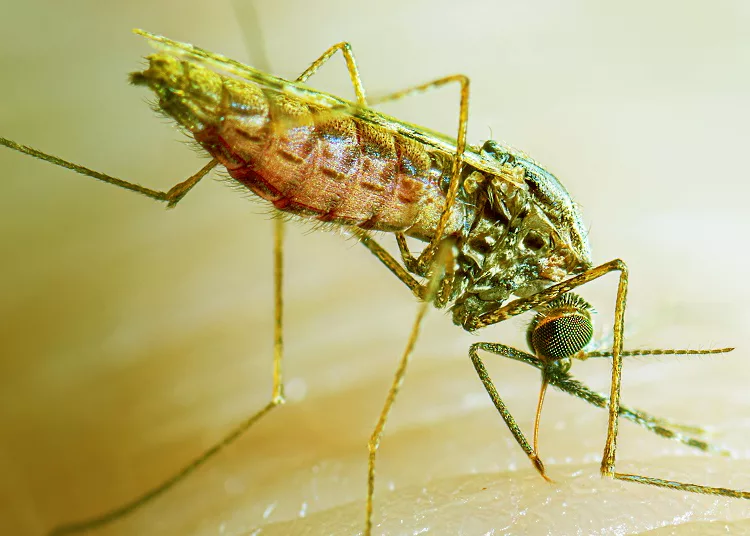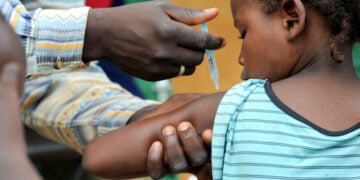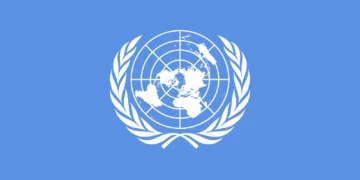For over two decades now, the country has been embroiled in the fight against malaria, a sickness that has remained seemingly invincible.
As Nigeria joins the rest of the to mark Malaria Day 2025, it is relevant to remind everyone of the urgency to combat this ailment that has remained a killer.
The theme for this year’s event “Malaria Ends with Us: Reinvest, Reimagine, Reignite,” emphasizes the need for increased investment, innovation, and renewed commitment in the global effort to eliminate malaria.
Experts claim that the disease is endemic in about 32 countries in Sub-Saharan Africa, and these countries are responsible for almost 93 per cent of malaria deaths worldwide.
It is a major public health challenge in Nigeria; being one of the countries with the highest burden of the disease and responsible for half of the malaria mortality all over the world.
The World Health Organisation (WHO) in it’s address to commemorate the day, revealed that the global community recommitted to malaria in the late 1990s and, as a result, an estimated 2.2 billion cases and 12.7 million deaths have been prevented over more than two decades.
But it added that after years of steady declines, progress has stalled and today, malaria claims an estimated one life every minute, with most deaths occurring in the African Region.
According to the 2022 World Malaria Report, Nigeria accounts for the highest percentage of the global malaria burden compared to any other country, with 27 per cent of the global estimated malaria cases and 31 per cent of the estimated deaths, as well as an estimated 55 per cent of malaria cases in West Africa in 2022.
Globally, there are various interventions, programmes and strategies employed to eradicate malaria.
We recognise interventions such as the Roll Back Malaria (RBM) initiative designed for quick malaria detection, treatment, and prevention, the WHO Global Technical Strategy for Malaria 2016–2030 to aid malaria eradication, E−2025 initiative; another WHO initiative to reduce the spread of malaria in 25 countries
In Nigeria, as well as in some other African countries, there are various existing programmes, strategies, and interventions for malaria elimination. These include the National Malaria Control Programme (NMCP), the National Malaria Elimination Programme (NMEP), the National Malaria Strategic Plan, and the Nigeria End Malaria Council.
The current 2021–2025 National Malaria Strategic Plan (NMSP) is based on the vision of achieving a malaria-free Nigeria with a goal of reducing malaria morbidity to less than 10 per cent of parasite prevalence and mortality attributable to malaria to less than 50 deaths per 1,000 by 2025.
We recall that in August 16, 2022, the federal government inaugurated a 16-member council known as the Nigeria End Malaria Council to reduce the burden in the country.
The council serves as a platform to solicit funds for promoting malaria elimination in the country and to ensure the good life and wellbeing of the people.
However, this is not the first time such a council would be established in an attempt to eradicate malaria in Africa.
Zambia is the country that first established the council and as of 2021, it has already been launched in Kenya, Eswatini, Mozambique, Uganda, and also announced in South Africa, Cameroon, and Burkina Faso.
Following the establishment of the council, the federal government had secured credits from three multilateral banks (the World Bank, African Development Bank, and Islamic Development Bank) totalling $364 million to fund health sector interventions in 13 states of the federation for five years (2020–2024).
In October last year, the country received the first batch of 800,000 doses of the malaria vaccine, with vaccination flagged off in Kebbi and Bayelsa states.
The WHO posit that cutting malaria cases would drive significant economic growth in malaria-affected countries: a 90 per cent reduction in malaria case incidence by 2030 could boost Gross Domestic Product (GDP) in endemic countries by US$ 142.7 billion.
According to the health body, malaria is transmitted throughout Nigeria, with 97 per cent of the population being at risk of being infected.
The country’s large population, along with other factors such as sanitation management and vegetation that favour mosquito breeding, account for the persistent rise in malaria transmission.
The duration of the transmission season ranges from year-round transmission in the south to three months or less in the north.
Plasmodium falciparum is the predominant malaria specie.
We know that there has been a lot of improvement in the fight against malaria in Nigeria, even as pertaining to national and community development.
Essential malaria control investments have been made in the last decade in Nigeria through the National Malaria Strategic Plan (NMSP), partnership and implementation.
But despite these significant efforts, Nigeria still faces challenges in its fight against malaria, including drug and insecticide resistance, inadequate healthcare infrastructure, and socioeconomic factors like poverty.
These challenges are compounded by limited access to preventative measures like insecticide-treated nets (ITNs), inconsistent programme implementation, and insufficient public awareness and engagement.
In our opinion, there is an obvious need to intensify the effort to reduce the malaria burden in the country, with more emphasis on promotion of healthy living.
Similarly, we urge the government to intensify awareness campaigns that will enable the people to engage in preventive measures rather than the curative.





